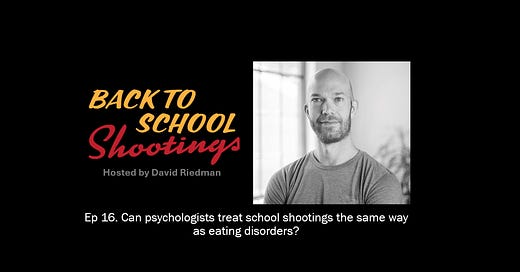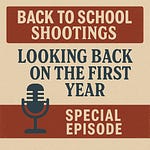Host: David Riedman, founder of the K-12 School Shooting Database
Guest: Dr. Tahir Rahman, Forensic Psychologist and Associate Professor of Psychiatry at Washington University in St. Louis.
Book: Extreme Overvalued Beliefs: Clinical and Forensic Psychiatric Dimensions
Article: School Shooters: Recognizing Extreme Overvalued Beliefs (Forensic Psychology). Non-delusional, rigidly held beliefs motivate most school shooters.
Key points:
School shooters are driven by ideology not severe mental illness.
Lockdown drills are ‘dress rehearsals’ where a vulnerable student with extreme overvalued beliefs gets to experience what committing a school shooting would be like.
School shootings are rooted in ideologies—extreme overvalued beliefs—that promote hate and violence. Children need to be taught about radicalization to avoid it and the Body Project for eating disorder education is a model.
Peer education and student involvement in interventions is essential to identify a student who is becoming radicalized and fixating on extreme overvalued beliefs.
Policymakers and federal officials need to identify and eliminate the online communities that allow children and teens to engage with violent, fringe sub-cultures (e.g., private Discord groups dedicated to school shootings).
David Riedman is the creator of the K-12 School Shooting Database, Chief Data Officer at a global risk management firm, and a tenure-track professor. Listen to my weekly podcast—Back to School Shootings—or my recent interviews on Freakonomics Radio, New England Journal of Medicine, and my article on CNN about AI and school security.













Share this post